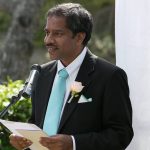A week in Himachal

Tony Mathew
1996 CE
In my role as Head of Operations & Delivery for TRL Software’s India operations, I’m based in Kerala in the South -West of India, but the progressive Northern India State of Himachal Pradesh are customers of TRL’s iMAAP software and our consultancy services, so I spend a lot of time in this part of the country.Last week was an eye opener for me. Many comforts that I take for granted in my life were suddenly denied for a few days by that notorious event called the ‘weather’!

Himachal is a beautiful place with fantastic valleys and mountains; a treat for the eye wherever you look in whichever season. But, it can also be very tricky if the weather gets its way.. After a long while, my daughter and wife had joined me for a short weekend vacation in Himachal. We were in Tirthan valley, a beautiful quiet rural area along the Great Himalayan National Park. When you live and work in a country where you can easily find around one million people between any two junctions, being in such a place even for a short time is a bliss.
Tirthan Valley encompasses the majestic Tirthan river, villages with beautiful houses, stunning valleys, wonderful night sky with array of bright stars, lovely people and above all only noises from of the nature coming from the river, birds, insects and animals – I told my wife we should seriously think of settling down here.
On the work front, my team was in Mandi. As part of TRL’s support to Himachal, enforcement and crash investigation trainings were scheduled in Mandi and Kangra districts. The plan was for the team to deliver training to police officers in Mandi and Kangra region that week. We discussed the week’s plan over the phone. I didn’t have any concerns, thanks to the brilliant team who knew what they were doing.And, then the weather struck. It rained incessantly from Saturday morning for around 72 hours. The majestically flowing beautiful Tirthan river became ferocious and ugly. Its roar could give one the feeling that it was hungry for destruction. Since the internet was available, the news started to pour in that there was widespread destruction in Manali (a famous tourist destruction), Mandi and other places. Social media platforms were broadcasting images and videos of rivers overflowing, roads caving in, bridges falling and hills sliding, bringing in massive rocks and trees along with it. As usual there were several speculations around dams failing, power stations crumbling, leading to an apocalypse like situation, one could assume.
It rained incessantly from Saturday morning for around 72 hours. The majestically flowing beautiful Tirthan river became ferocious and ugly. Its roar could give one the feeling that it was hungry for destruction. Since the internet was available, the news started to pour in that there was widespread destruction in Manali (a famous tourist destruction), Mandi and other places. Social media platforms were broadcasting images and videos of rivers overflowing, roads caving in, bridges falling and hills sliding, bringing in massive rocks and trees along with it. As usual there were several speculations around dams failing, power stations crumbling, leading to an apocalypse like situation, one could assume.
On Sunday electricity was cut off, phones lost signal and we lost the internet conn
ection, completely isolating us (and a few souls along with us living in the cottage) from the rest of the world. I messaged my brother and elder daughter (who are in Chennai, which is metropolis in south of India some 2,700 kms away from where I was) and informed my colleagues at work that I may lose connection for a while and asked them not to worry. I then spoke to my team in Mandi, discussing various scenarios and options. The team was ready to handle any reasonable situation that could emerge. But, I hoped that this would only last for few hours and I would be able to resume my routine business on Monday.
However, that didn’t happen. A slide ended up damaging the water tank and motor in the cottage. We were now facing a shortage of water and supplies as well. Water stopped coming in the taps and the situation became increasingly worrying. But the owners of the cottage were brave, they handled the situation so well, keeping us guests comfortable with reasonable supply of food and water.
For me, it was a harrowing couple of days. We were in a situation where there was nothing we could really do – we tried to calm ourselves down by playing carroms, talking to each other, reading books and going for walks, which I found very risky later. The most worrying part for us was our inability to inform our folks on our whereabouts or talk to my colleagues at work. Later, I realised that while we were having village walks, my brother was actively corresponding with the emergency control room in Himachal and had registered us on ‘missing persons’ list.

The team had to cancel our training programme in Mandi. On Tuesday afternoon, the rain stopped, skies cleared and we could see bright stars in the dark sky again.
But, the communication infrastructure didn’t improve, we were still without any kind of connectivity and mobility. When things didn’t improve until late Tuesday evening, I decided that I needed to do something to inform at least our folks about our whereabouts and talk to my team.
On Wednesday early morning, at around 5.30 hrs we started walking to the nearest town which was around 6 kms away. While 6 kms may not sound like a big deal to many, it was for me who spent most of my life on the plains near the Arabian sea. I was in the middle of nowhere, walking in a ravaged hill region at an altitude of around 2,800m near the Himalayas. My target was the police station and my sole purpose was to grab a phone and inform my folks to not worry. I was sure that the Police Station might have some kind of communication facility. On the way, I got a first hand idea of how bad the situation was, but also how fast the road agencies were acting to clear the slides and make the road motorable again.
was around 6 kms away. While 6 kms may not sound like a big deal to many, it was for me who spent most of my life on the plains near the Arabian sea. I was in the middle of nowhere, walking in a ravaged hill region at an altitude of around 2,800m near the Himalayas. My target was the police station and my sole purpose was to grab a phone and inform my folks to not worry. I was sure that the Police Station might have some kind of communication facility. On the way, I got a first hand idea of how bad the situation was, but also how fast the road agencies were acting to clear the slides and make the road motorable again. We walked on the mudslides, climbed the logs and reach the police station in Banjar at around 7.00 hrs to find that they were equally helpless!
We walked on the mudslides, climbed the logs and reach the police station in Banjar at around 7.00 hrs to find that they were equally helpless!
The situation was the same in Banjar town and the Police told us that the situation was similar in across 30 km radius from the town – no electricity, no phones, no internet. But roads were starting to clear. Police were communicating with the Kullu control room (around 60 km away) using Walkie Talkies charged in infrequent intervals using gen sets. I wonder why the government couldn’t give satellite phones to police stations in such vulnerable areas! We submitted our contact numbers to the police and requested them to inform our folks through Kullu control room. I doubted they would, given the hundreds of numbers registered there already. I couldn’t find any sense of urgency at least in that police station, the place didn’t look like one that was dealing with an emergency situation. Maybe this had become a routine for them!
We walked all the way back only to find more slides blocking the road, which weren’t there in the morning. Apparently, there are risks of more slides when the rain subsides and the hill becomes dry. I could see idle excavators on the way, the time was around 9.00 hrs in the morning, we were told that they will start work after 1 hour! On the way, we spoke to Taxi drivers who informed us that the road had been cleared until the highway (around 25 kms) for small cars to pass. For some reason, I found information from the taxi drivers more reliable than the police in Banjar station. I became kind of hopeful that they may clear the road to facilitate necessary travel this morning. I counted five landslides to clear for us to get out.
On the way, we spoke to Taxi drivers who informed us that the road had been cleared until the highway (around 25 kms) for small cars to pass. For some reason, I found information from the taxi drivers more reliable than the police in Banjar station. I became kind of hopeful that they may clear the road to facilitate necessary travel this morning. I counted five landslides to clear for us to get out.
After breakfast we were packed and ready to go. I waited near the road to see the excavator pass through. If it passed through us to the south, that would mean they might have cleared the road ahead to the north. At around 2 pm, I could see the excavator passing. We started straightway to Shimla, prepared for any overnight sleep in the car, if the situation demanded. But, I was clear that I needed to get to connectivity as soon as possible.
On the way back, we could see ripped off roads which were newly constructed, massive slides and broken bridges. I thought to myself this scene spoke a lot about our engineering standards and construction quality. We could see ripped off roads which were newly constructed, massive slides and broken bridges. I thought to myself this scene spoke a lot about our engineering standards and construction quality. Everybody will blame the weather, but for me it was very clear that poor design and construction quality elevated the disaster to a different level altogether. There are usually no detailed engineering investigation done to ensure slope stability, it is a reality that stability of slopes on Himachal roads is left to the guesswork of the operator of the excavator.
We could see ripped off roads which were newly constructed, massive slides and broken bridges. I thought to myself this scene spoke a lot about our engineering standards and construction quality. Everybody will blame the weather, but for me it was very clear that poor design and construction quality elevated the disaster to a different level altogether. There are usually no detailed engineering investigation done to ensure slope stability, it is a reality that stability of slopes on Himachal roads is left to the guesswork of the operator of the excavator.
We got connectivity back after a couple of hours. I messaged my folks at home, friends and colleagues at work. I could see the flurry of messages in social media that my brother had with emergency contacts established by the Himachal Government. The scheduled training in Mandi got cancelled. But, thanks to our brilliant team, they travelled to Dharamshala prepared to deliver the training to police officers in Kangra region on Thursday and Friday. I must appreciate the commitment of police officers as well. Despite the emergency in the State, the Superintendent of Police in Kangra could still manage to send around 85 police staff for the road safety training in between all this havoc. Kangra was not affected, but in such situations it was easy for them to say ‘no’, which they didn’t.
We were back in Shimla on Wednesday, after which we proceeded to Chandigarh to travel back to Kerala on Friday. It was another matter the Shimla Chandigarh highways completely ripped off, but this is for some other time. On the way to Chandigarh, I received a call from Kullu emergency control room. I have informed them we are not missing persons anymore…!!!!!!!!!!!!!!











